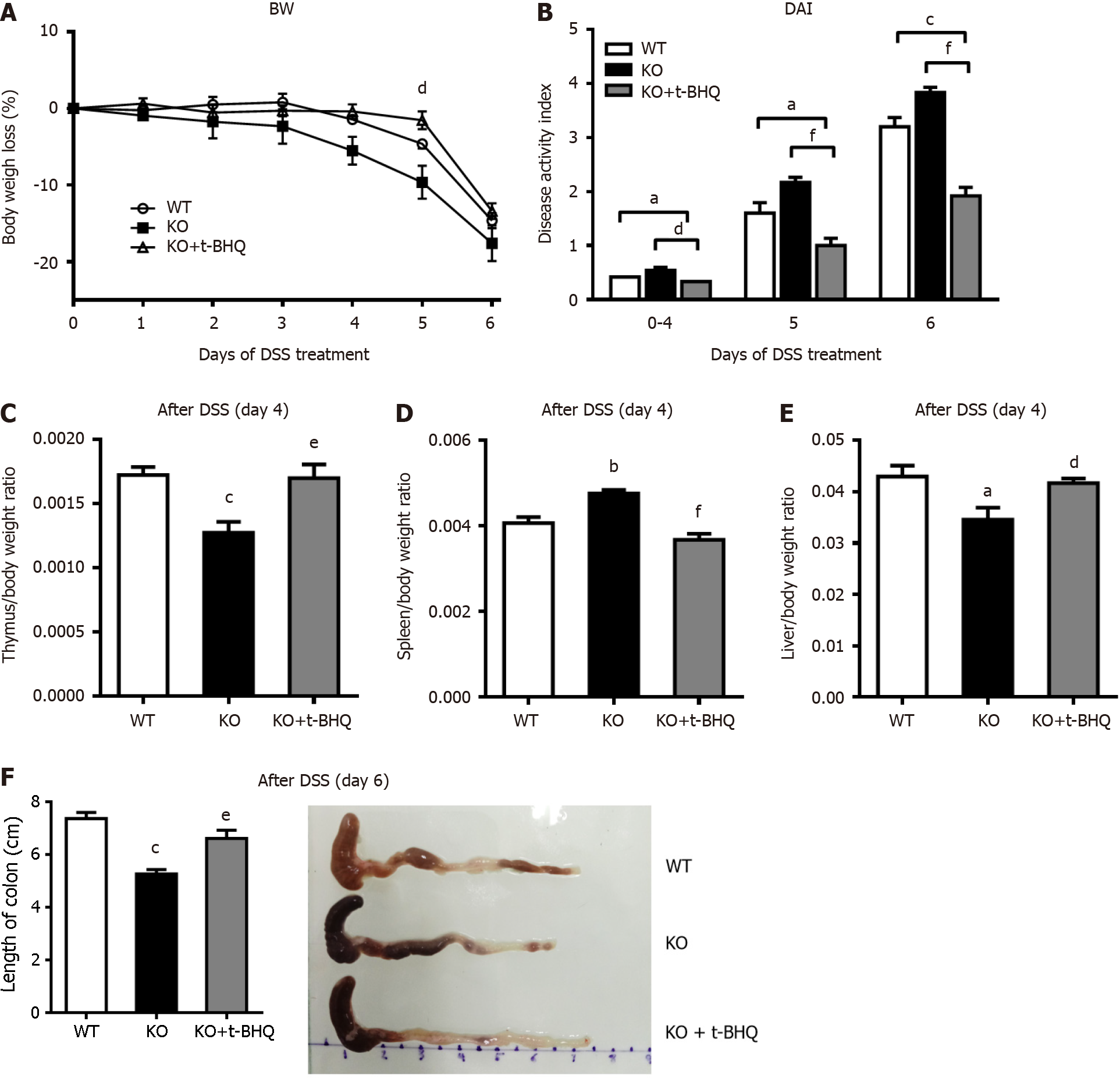Copyright
©The Author(s) 2024.
World J Gastroenterol. Mar 14, 2024; 30(10): 1405-1419
Published online Mar 14, 2024. doi: 10.3748/wjg.v30.i10.1405
Published online Mar 14, 2024. doi: 10.3748/wjg.v30.i10.1405
Figure 7 Changes in the incidence of experimental colitis after intraperitoneal injection of tertiary butylhydroquinone in mice.
The mice were given 3% dextran sulfate sodium (DSS) drinking water for 6 d, and gene knockout (KO) mice in the tertiary butylhydroquinone (t-BHQ) group were intraperitoneally injected with 50 mg/kg t-BHQ every day. A: Body weight (BW) loss; B: The disease activity index (DAI), calculated according to BW loss, active state, stool consistency, and blood in the stool; C-E: On day 6 of DSS treatment, the mice were killed, the organs were removed and weighed, the ratios of organ weight to BW were calculated; F: The colon lengths were measured. n = 4 or 5 per group. aP < 0.05, bP < 0.01, cP < 0.005, compared to wild-type (WT) mice. dP < 0.05, eP < 0.01, fP < 0.005, compared to KO mice.
- Citation: Tian Y, Li X, Wang X, Pei ST, Pan HX, Cheng YQ, Li YC, Cao WT, Petersen JDD, Zhang P. Alkaline sphingomyelinase deficiency impairs intestinal mucosal barrier integrity and reduces antioxidant capacity in dextran sulfate sodium-induced colitis. World J Gastroenterol 2024; 30(10): 1405-1419
- URL: https://www.wjgnet.com/1007-9327/full/v30/i10/1405.htm
- DOI: https://dx.doi.org/10.3748/wjg.v30.i10.1405









